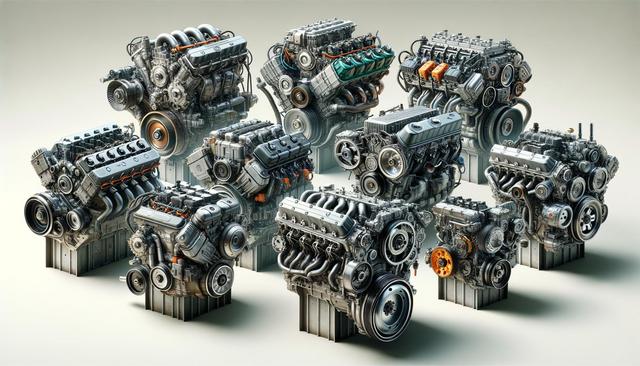Understanding the Benefits of Buying Used Engines
Purchasing a used engine can be a smart financial decision, especially when you’re aiming to extend the life of your vehicle without spending a fortune. Used engines for sale often come from vehicles that have been retired due to non-engine related issues, meaning the engine itself may still have many miles of reliable use left. Choosing a quality used engine allows you to get back on the road quickly and affordably, while also reducing waste by giving a second life to a functional component.
One of the key advantages is cost savings. Compared to new or rebuilt engines, used engines typically come at significantly lower prices. This makes them an attractive option for vehicle owners who want to maintain performance without the higher expenses. Additionally, many suppliers offer low-mileage engines that have been thoroughly inspected and tested, providing peace of mind alongside affordability.
Here are some core benefits of choosing a used engine:
- Lower upfront cost compared to new engines
- Availability of low-mileage engines
- Eco-friendly choice by reducing waste
- Options for various makes and models
By understanding these benefits, you can make an informed decision about investing in a used engine that suits both your vehicle and your budget.
Where to Find Reliable Used Engines for Sale
When searching for used engines for sale, it’s important to focus on reputable sources that prioritize quality and customer service. Not all sellers offer the same level of transparency or product assurance, so taking the time to vet suppliers can make a significant difference in your purchase experience. Look for vendors who provide detailed specifications, engine history, and testing information.
There are several types of places where you can find engines for sale:
- Online marketplaces that specialize in auto parts
- Certified automotive recyclers or salvage yards
- Engine importers and distributors
- Mechanic shops with access to reliable suppliers
Online platforms can be convenient as they often allow you to filter search results by vehicle make, model, mileage, and price range. However, always ensure the seller offers a warranty or return policy, and check customer reviews where available. Working with a trusted mechanic during the buying process is also a good idea, especially if you’re not familiar with engine specifications or installation requirements.
Key Factors to Consider When Buying a Used Engine
Not all used engines are created equal. Before making a purchase, consider several important factors that can help you determine whether a particular engine is a suitable match for your vehicle and driving needs. These considerations go beyond just price and include technical compatibility, mileage, and condition.
Start by ensuring the engine is compatible with your specific vehicle make and model. Even within the same model year, different engine types may have been used, so verifying compatibility is essential. Next, check the mileage. While low mileage is generally preferred, overall condition and maintenance history can be just as important.
Other key factors include:
- Engine compression test results
- Signs of wear or damage
- Warranty availability
- VIN (Vehicle Identification Number) matching
- Reputation of the seller
Taking the time to ask questions and request documentation from the seller will help ensure that the engine you’re buying is reliable and ready for installation.
How to Ensure Quality and Longevity After Purchase
Once you’ve found a suitable used engine, proper installation and maintenance are critical to ensuring it performs well over the long term. Even a highly rated used engine can develop problems if installed incorrectly or if maintenance is neglected. For this reason, it’s often recommended to have a professional mechanic install the engine, especially if the engine swap involves complex components or system integration.
After installation, regular maintenance should be your priority. This includes changing the oil on schedule, checking coolant levels, and inspecting belts and hoses. Keeping the engine clean and addressing any unusual noises or performance issues early can help you avoid costly repairs down the line.
Here are a few best practices for maintaining your used engine:
- Use high-quality motor oil and filters
- Monitor engine temperature to prevent overheating
- Keep up with routine tune-ups
- Replace worn-out spark plugs and air filters
By following these maintenance tips, you can extend the life of your used engine and get the most value out of your investment.
Balancing Cost and Quality for Your Needs
Finding the right used engine involves balancing your budget with the level of quality and reliability you need. While lower prices can be tempting, it’s important not to overlook the long-term value of choosing an engine that has been tested and comes with a warranty. Skimping on quality may lead to higher costs later due to repairs or early replacement.
Consider your vehicle’s usage when evaluating engine options. If you use your car for daily commuting or long-distance travel, investing in a low-mileage engine with a solid warranty may be worth the higher initial cost. On the other hand, if the vehicle is used occasionally or for short trips, a moderately priced engine with average mileage may suffice.
To make the right decision, weigh the following:
- Budget constraints versus long-term reliability
- Your vehicle’s age and condition
- Availability of parts and service
- Expected lifespan of the engine based on current condition
Being clear about your needs and expectations will help you choose a used engine that delivers dependable performance without overspending.
Conclusion: Make an Informed Choice When Shopping for Used Engines
Choosing a used engine can be a practical and cost-effective way to keep your vehicle running smoothly. With many engines for sale offering low mileage and solid performance, it’s possible to find an option that meets both your budget and reliability expectations. By focusing on reputable sources, evaluating compatibility and condition, and committing to proper installation and maintenance, you can make an informed purchase that adds value and extends your vehicle’s life. Whether you’re replacing a failed engine or planning a performance upgrade, taking a thoughtful approach ensures your investment pays off in the long run.


